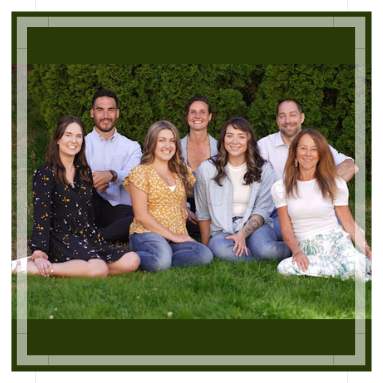
Eating Disorder Counsellor
Your Path Counselling, Ph.D., RCC.
Registered Clinical Counsellor
821 Burdett, Suite 303, Victoria, British Columbia V8W 1B3 | 7785840583
Eating disorders are common and help is available. Together, we can work to better understand your challenges and come up with practical and realistic solutions. There are many ways to work with eating disorders and I focus on strengths-based approaches and ones that help you get in touch with your emotions and goals. I work with men and women of all ages.
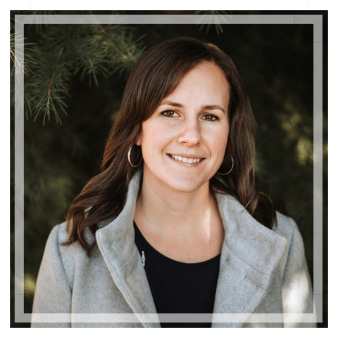
Eating Disorder Counselor
Olivia Mayer, MA, RCC
Registered Clinical Counsellor
Available for Online Therapy
Olivia has a passion for helping individuals struggling with eating disorders, providing support through a behavioral and trauma-informed approach. She helps clients uncover and address the underlying emotional and psychological factors contributing to their disorder while equipping them with practical strategies for recovery. Olivia’s compassionate and holistic approach focuses on creating a safe space for clients to explore their relationship with food and their bodies, empowering them to build healthier habits and a positive self-image. By integrating trauma-informed care with actionable tools, Olivia walks alongside her clients as they work toward healing, resilience, and lasting change.
-petronis.jpg)
Eating Disorder Counsellor
Aiyana (Yana) Petronis, M.A., C.C.C.
Canadian Certified Counsellor (C.C.C.)
321-645 Fort Street, Victoria, British Columbia V8W 1G2 | 778-679-3163
I work with folks of all genders and body sizes experiencing disordered eating, bulimia, binge eating, restrictive eating, and stress and fear around food. Drawing on Intuitive Eating principles, and using somatic, attachment-based, and trauma-focused work as appropriate, I work collaboratively with clients to build safety, freedom, trust, and joy with food and eating.

Eating Disorder Counsellor
Ben Bjorgaard, PhDc, MA, RCC
Registered Clinical Counsellor
Vancouver, British Columbia V5K 5G1 |
Issues related to food and body-image, eating or not eating, perfectionism, or overall fixation on appearance can flood your reality to the point where they consume you. These kinds of issues often arise to serve a function, or fulfill a purpose, in your inner, psychological world. They can be a way to cope, to try to heal hurt parts of yourself, to maintain control in uncontrollable situations. Sometimes, they can be related to adverse childhood experiences and developmental trauma—though all the jargon may not apply or do justice to your individual context. Together, we can find a way to manage your thoughts and behaviors and take steps to address anything that may be underlying them.

Eating Disorder Counselor
Kevin Fleming, Ph.D.
Coach/Change Agent/Consultant
At Home or Private Discreet Intensives
While most eating disorder issues are treated by cognitive behavioral methodologies or specialized outpatient/inpatient programs, Grey Matters International and the work of Kevin J. Fleming, PhD provide relief first and foremost for the brain of one suffering from an eating disorder----without giving them medication. We believe that the neural circuitries responsible for the compulsive behaviors with eating are not necessarily only a neurotransmitter issue but of overused neural networks that affect the harmonization, balance, and decisions of the whole brain. Contact kevin@kevinflemingphd.com or 877-606-6161 to learn more about this safe and effective alternative.
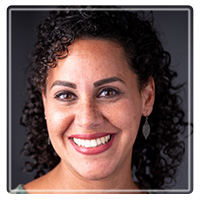
Eating Disorder Counselor
Heather Awad, MCP, RCC
Registered Clinical Counsellor
Available for Online Therapy
If you’ve struggled with disordered eating, you are all too familiar with compulsive behavior, obsessive thoughts and a disconnect from the body. You may also have a constant need for control while at the same time feeling a frightening and exhausting loss of all control. Please know that none of this is your choice, but rather is a state of stress and overwhelm while you do your best to feel better. I have nothing but compassion for the distress that comes with food-related challenges, and you have my commitment to help you care for the difficult underlying emotions involved. Together, we will create a safe space to move towards healing and a safe relationship with food and the body.

Eating Disorder Counsellor
Gravitate Counselling Inc., MA/M.Ed., RCC
Registered Clinical Counsellor
#366, 2223A Oak Bay Avenue, Victoria, British Columbia V8R 1C2 | 778-677-7978
If you struggle with food addiction, emotional eating, eating disorders (including anorexia and/or bulimia), disordered eating, or have general concerns around your consumption of food, Andee Dale with Gravitate Counselling Inc. might be the right counsellor for you. She specializes in food-related concerns and is working towards certification as an Eating Disorders Specialist with the International Association of Eating Disorders Professionals. You can expect sessions with Andee to be strengths-based and solution-focused, with each appointment focusing on what you would like to talk about.

Eating Disorder Counsellor
Kirsteen Moore, Psy. D., R.C.C.
Psychotherapist
6599 Wallace Drive, Brentwood Bay, British Columbia V8M 1J8 | 250-920-6342
I am honoured that you are interested in my services and I would like to tell you a little bit about myself. I have been described as slightly non-conventional in the counselling world, which suits me perfectly, and also tends to suit youth who are trying to stand up to the force of the problems in their life. I am very comfortable working with this population, and I feel fortunate that I can connect with teens the way I do, conventionally or in a way that makes sense to them.
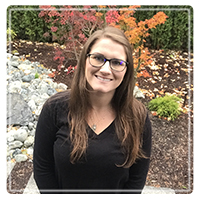
Eating Disorder Counsellor
Kathleen Lafferty, MCP, RCC
Registered Clinical Counsellor
2601 Penrhyn St., Victoria, British Columbia V8N 1G4 | 12508890010
The category of ‘eating disorders’ includes anorexia-nervosa, bulimia-nervosa, binge-eating disorder, and eating disorders not otherwise specified (EDNOS). The current most effective treatment model for eating disorders is Cognitive-Behavioural Therapy Enhanced. CBT-E is highly individualized to each client, and involves exploring thoughts, feelings, and behaviours, psychoeducation, investigating patterns of belief that are maintaining the eating disorder, learning skills and coping strategies, and planning for the future. Clients can typically expect to feel more aware and in control of their thoughts, emotions, and behaviour, have more positive relationships, more energy, and self love.

Eating Disorder Counsellor
Janice Graham, Ph.D., RCC
Psychotherapist and Registered Clinical Counsellor
547 Michigan Street, suite #203, Victoria, British Columbia V8V 1E2 | 250-588-4534
If you are eating in an unhealthy way quite possibly you have sought medical advice. Counseling will support you by looking for the reasons why you use food and eating in unhealthy ways. i will ask you to tell your story in lots of detail. Maybe you will uncover self esteem issues or issues about control and power. We may talk about feminism and societal trends and advertising which encourage you to try to look like models or entertainers. We will try to strengthen your pride and acceptance of yourself so you do not seek approval using behaviours not respectful of you health and individuality. We will look at effective eating management strategies and self honoring lifestyle choices.
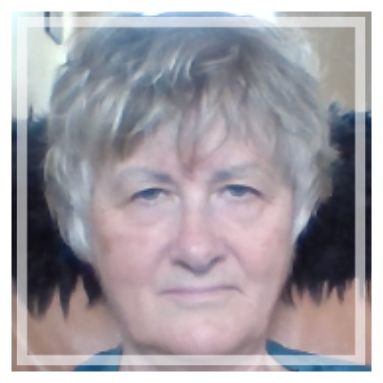
Eating Disorder Counsellor
Sharolyn Sloat, PhD, CPBC #1666
Psychologist (Registered with CPBC)
453 Head Street, West Bay Marina, Victoria, British Columbia V9A 5S1 | 250.884.9041
Eating Disorders can become all-consuming, and extremely disruptive of every day life. Most who suffer with eating disorders think about their relationship with food all day long, weigh themselves excessively, and do (sometimes irreparable) damage to their bodies and psyches. Dr Sloat helps you to find the underlying causes and thinking patterns that perpetuate your disorder so you can find a sustainable solution and implement it. Are you ready to reclaim yourself?
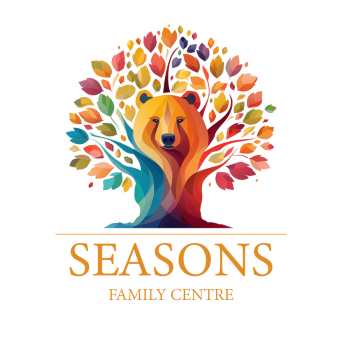
Eating Disorder Counsellor
Seasons Family Centre, RCC, RPsyc
Registered Clinical Counsellor, Registered Psychologist
#405-3960 Quadra Street, Victoria, British Columbia V8X 4A3 | +1 778 817 1606
At Seasons Family Centre, we provide support for youth and adults struggling with eating disorders, offering a warm, non-judgmental space for healing. Using evidence-based approaches like CBT, DBT, EFFT, IFS, and FBT, we tailor care to meet each individual’s needs while fostering trust and connection. Rooted in a Health at Every Size (HAES) philosophy, we emphasize respect for all bodies and focus on holistic well-being. With deep care and understanding, we guide clients and families toward healing relationships with food, their bodies, and themselves.
You Have Found Honest and Real Therapy for Food Issues in Victoria, BC.
Are you ready to start on a new path? Thank you for visiting our British Columbia search of licensed therapists in Victoria who specialize and have experience treating food issues such as anorexia, over eating, food aversions, orthorexia nervosa and bulimia. Food issues affect anyone, both children and adults and can impede our relationships and daily life. Counselling for help with food and eating is a vital component of healthy recovery and restoration. Find the right counselor for eating and food issues in Victoria right now and begin your new life.
Victoria is located in British Columbia, Canada. It has a land area of 19.47 square kilometers. The population of Victoria is 85,792 people with 45,762 households . The population ranking for Victoria is #66 nationally and #14 for the province of British Columbia with a density of 4405.80 people per sq km. Victoria therapists serve postal code: V8W.
